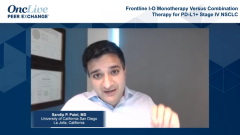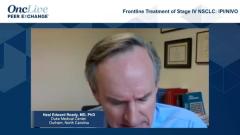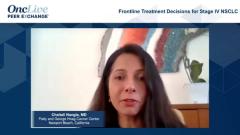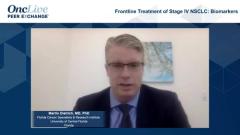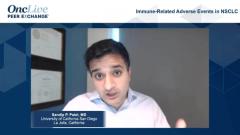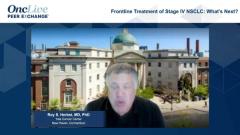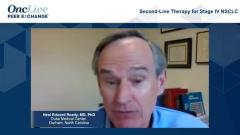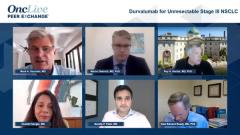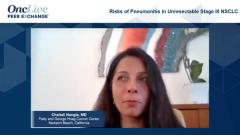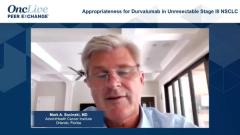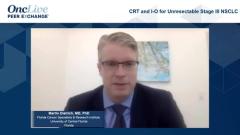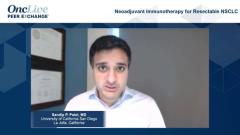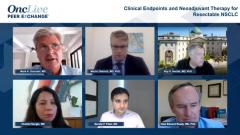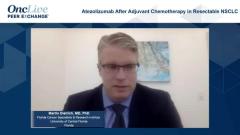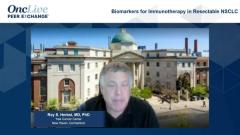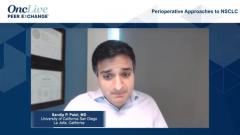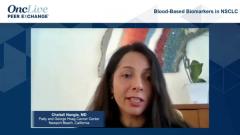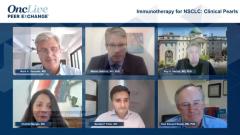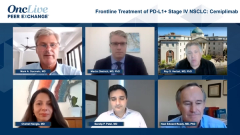
Risks of Pneumonitis in Unresectable Stage III NSCLC
How to differentiate whether a patient with unresectable stage III non–small cell lung cancer develops pneumonitis from chemoradiation or durvalumab, and insight regarding techniques to help manage treatment toxicities.
Episodes in this series

Mark A. Socinski, MD: Chaitali, one of the issues prior to the execution of the PACIFIC clinical trial was pneumonitis. We know there’s a risk of pneumonitis with radiation therapy and then we’re following that procedure, that modality with a drug that is known to have a low rate of pneumonitis. But the concern was, will there be issues? At the end of the day, it was not an issue; but give us your thoughts on this issue of pneumonitis. How difficult is it to sort out IO [immuno-oncology] versus radiation-related pneumonitis, so on, and so forth.
Chaitali Nangia, MD: In my practice I find it extremely difficult to use that, honestly. Sometimes it's clear that if it was just in the radiation field, temporally related to it sometimes but that's not very often. Most times people present with cough, shortness of breath, dyspnea that does not go away, and you've already gone into galaxy, we don't know. And then comes the question: What do you do with them? Do you just stop the drugs and then how do you reach them if they haven't recovered? It was a valid concern when the study was designed but we saw at ASCO [2021 American Society of Clinical Oncology Annual Meeting] not as so many studies with the combination, as the same setting unresectable. We can go into it in the session that there is combination such as the same setting unresectable. We cannot go into it in the next session that there is combination with the checkpoint inhibitor and leading up to concurrent radiation RT [radiotherapy] and then followed by maintenance. There was a signal that the pneumonitis was higher if given concurrently with the radiation. I think PACIFIC kind of sailed through it—literally sailed through it because they started more in the ardent postconcurrent radiation rather than along with that. So, I think there's definitely a concern and we have to stay vigilant. Is it enough for me not to do it? No, but what it does tell me is if I'm going to take my patients through it, I need to stay super vigilant.
Mark A. Socinski, MD: We have to realize that patients had to get through chemo radiotherapy to get onto the trials, so there is some selection bias there, so I think your point is actually a good point.
TRANSCRIPT EDITED FOR CLARITY


